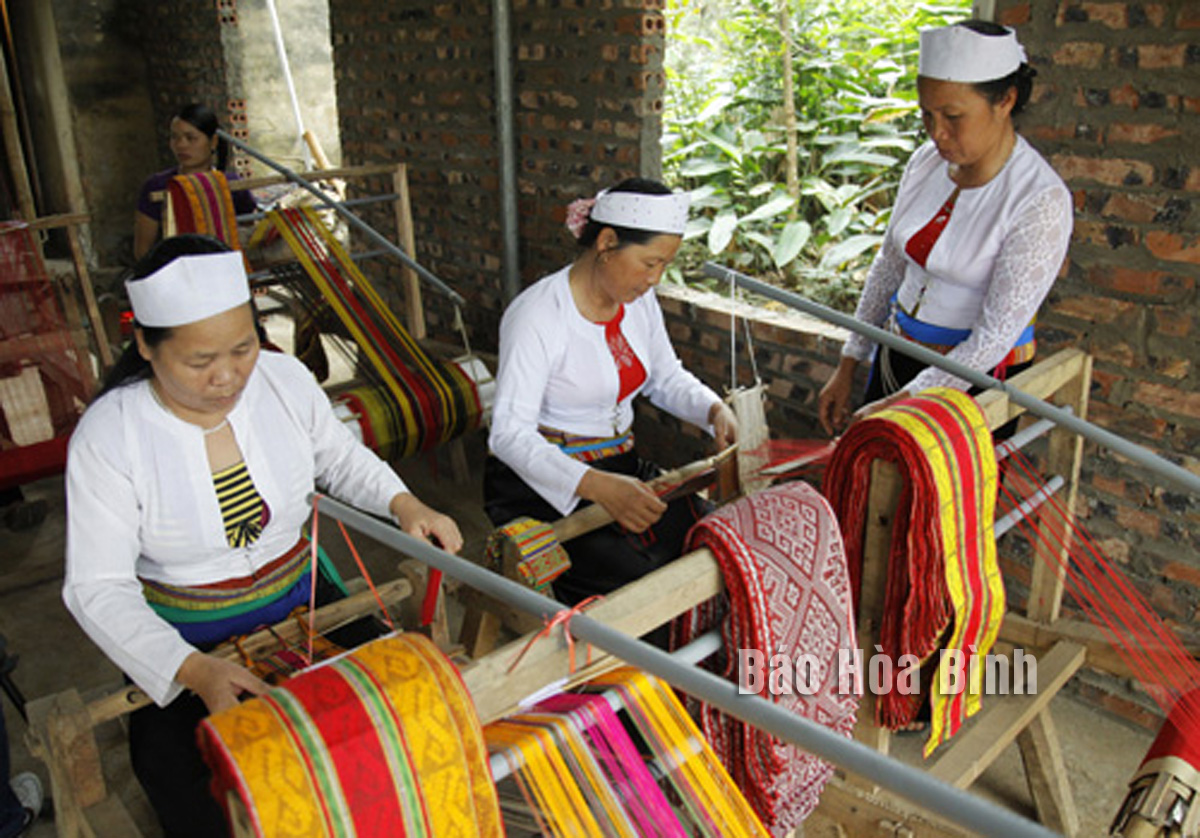
Hoa Binh province currently has 134 non-agricultural cooperatives, accounting for representing 26.8% of the local total cooperatives. Of them, 42 are in industry and handicrafts, 10 in construction, 13 in electricity, 20 in trade and services, 6 in environmental sanitation services, 14 in transportation, 10 in tourism, and 19 in other fields.
In recent years, traditional brocade weaving cooperatives have been particularly effective, playing a crucial role in preserving and promoting the cultural heritage of the Muong ethnic group.
These non-agricultural cooperatives have attracted over 2,000 members and created jobs for approximately 6,900 workers. In the first half of 2024, the average profit per cooperative was around 131 million VND (5,300 USD), with workers earning an average monthly income of 5.84 million VND.
According to the provincial People’s Committee, all non-agricultural cooperatives have successfully completed their transition and reorganisation in accordance with the 2012 Cooperative Law, thereby creating a solid foundation for future development. They play a significant role in advancing the province's goals for new style rural development, particularly in meeting Criterion 13, which focuses on production organisation.
Currently, 114 out of 129 communes in the province have met this criterion.
The Standing Board of the Hoa Binh provincial Party Committee has agreed in principle on a proposal by the Standing Board of the Party Committee of Hoa Binh city to gather feedback on the city’s 1:2000 zoning plan, which forms part of its broader urban development strategy.
Hoa Binh province has made notable progress in public administration reform and digital government development, with the satisfaction index among citizens and businesses reaching over 84%, according to recent government evaluations.
Thanks to great efforts by local authorities in recent times, the governance and public administration performance of Mai Chau district has been significantly improved.
In the afternoon of June 6, the Party Committee, the People's Council, the People's Committee and the Fatherland Front of Lac Son district solemnly held a meeting to celebrate the 139th anniversary of the district's founding (1886–2025) and the 79th anniversary of the establishment of the district's Party Committee (1946–2025). There was the attendance of Mr. Bui Van Thang, the Vice Chairman of the Provincial People's Council; Mr. Quach Tat Liem, the Vice Chairman of the Provincial People's Committee; Ms. Dang Bich Ngoc, the Deputy Head of the National Assembly Delegation of the province; as well as the former leaders of the province and district through various periods, who are the natives of the district.
Implementing the Politburo’s Resolution No. 57-NQ/TW on breakthroughs in science – technology, innovation, and digital transformation is a golden opportunity for the northern mountainous province of Hoa Binh to renew growth model, improve competitive edge and shorten digital gap.
Resolution 57-NQ/TW, issued by the Politburo on December 22, 2024, identifies sci-tech, innovation, and digital transformation as strategic breakthroughs to build a developed and prosperous nation. In Hoa Binh province, this spirit is not just a slogan, it’s being put into action through concrete initiatives that form a "new development triangle”: digital citizenship, digital economy, and digital administration.



